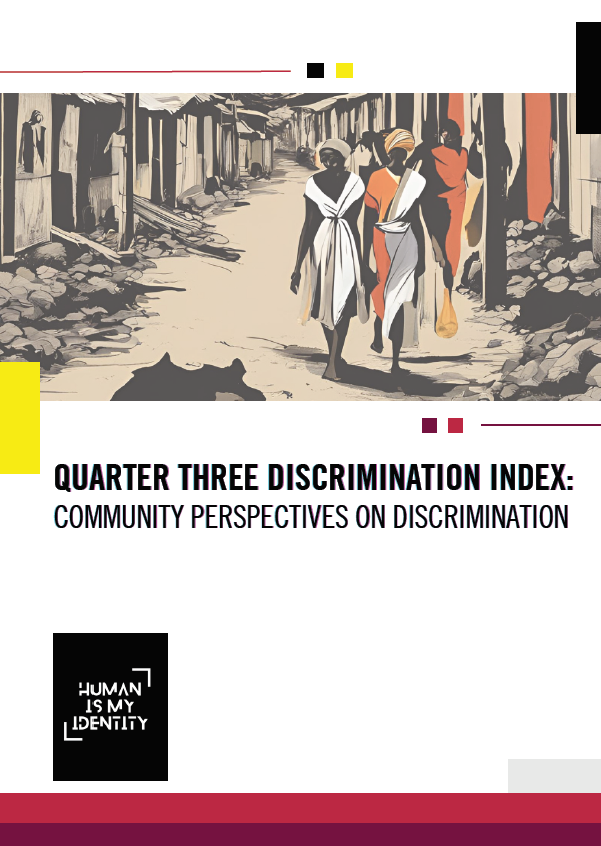Quarter Three Discrimination Index: Community Perspectives on Discrimination
This discrimination index represents the findings of a qualitative participatory action research (PAR) study on discrimination in four counties in Kenya: Nairobi, Nakuru, Kilifi and Wajir. The research explored lived experiences of discrimination as it appears in various forms and contexts, including gender, age, sexual orientation, ethnicity, and socio-economic status. The participatory nature of the research emphasised the voices of the communities in the counties.
Key Findings
- Participants recognised and understood the concept of negative differential treatment.
- Most participants acknowledged that discrimination is prevalent within the counties but has not been characterised as a community concern, as each matter is handled on an individual or case-by-case basis.
- Gender-based discrimination was prevalent across all counties, with women reporting barriers to access to employment and political participation.
- Sexual and gender-based violence was reported as a serious concern in Nairobi, Kilifi and Wajir counties. Victims of sexual and gender-based violence do not receive the adequate physical, financial and psychological attention that they require to continue living in communities after traumatic experiences.
- The youth expressed frustration over the lack of employment. Corruption, tribalism, and cronyism frustrate access to job opportunities.
- In Nairobi, the elderly are profiled when they are working. The youth feel they are taking up opportunities when they should have retired.
- LGBTQ+ persons are judged based on how they dress and are, at times, denied employment opportunities. In Nakuru, LGBTQ+ persons cannot access religious institutions because they are seen as outcasts.
- Persons with disabilities (PWDs) are regarded as incompetent at work or unable to work at all.
- Socio-economic discrimination cut across all four counties. Persons of disadvantaged socio-economic status lamented non-responsive public offices and inaccessibility to services.
- Discrimination based on a person’s health status, specifically a person’s HIV status, is common among domestic workers.
- There were mixed reactions from the participants on whether they could report instances of discrimination within their communities.



